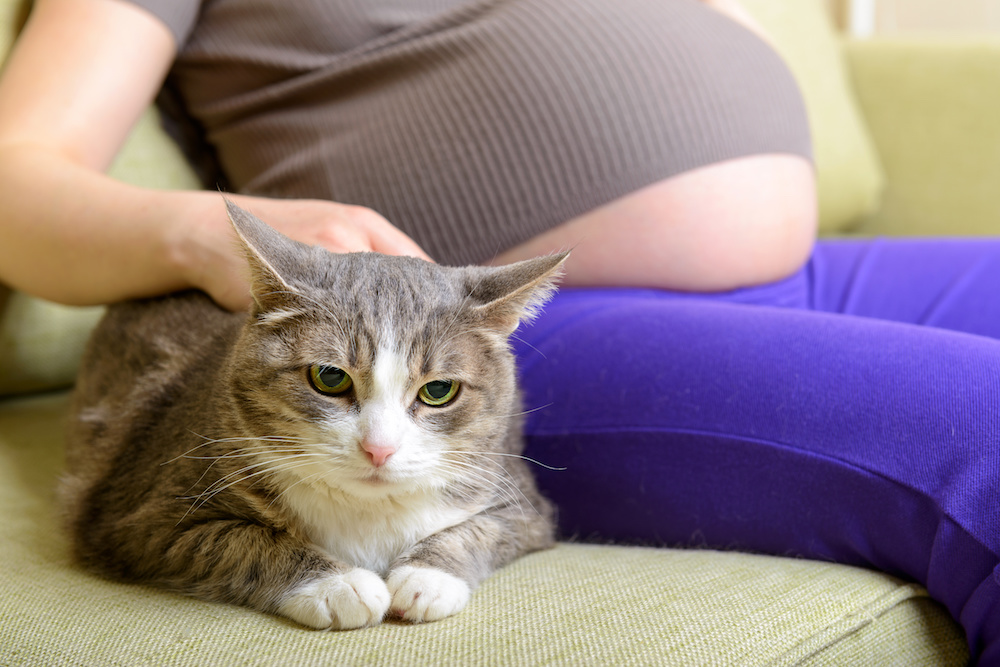
It is only dangerous to have a cat during pregnancy if you contract toxoplasmosis, a common infection found in birds, animals, and people. For most people, the disease is not a serious health problem, but for a pregnant woman’s growing baby, the disease can cause brain damage and vision loss. In the United States, less than 1 percent of pregnancies are complicated by a maternal toxoplasmosis infection.
Why could it be dangerous to have a cat during pregnancy?
Toxoplasmosis is caused by a parasite. You can get the infection by digging or gardening in sand or soil where an infected cat has left feces, changing an infected cat’s litter box, or eating anything that has touched infected cat feces, such as fruits and vegetables that have not been washed. You can also contract the infection by eating food that has touched tables and counters your cat has walked on or by ingesting undercooked or raw meat. Symptoms may include swollen glands, muscle aches, fatigue, fever, sore throat, and/or skin rash.
Toxoplasmosis is diagnosed through a blood test, which your doctor can provide. If you get the infection while you’re pregnant, you will need to also have your baby tested, which is done by an amniocentesis with samples taken from the fluid from the sac that surrounds your baby. In healthy people, the infection often goes away on its own without treatment. If women are infected when they are pregnant, however, they are usually given a medication to help prevent transmission to the baby, and if there is evidence that transmission has occurred they are treated with a combination of medications.
If you have a cat, here’s how you can help prevent toxoplasmosis during pregnancy:
- Ask someone to clean or empty the litter box while you’re pregnant.
- Wash tables and counters well if a cat may have walked on them
- If you have to clean the cat’s litter box, wear gloves and a face mask and be sure to wash your hands after you are finished.
- If you touch soil, be sure to wear gloves and wash your hands after you’re done. Avoid contact with cat feces in your garden.
- Wash your vegetables and fruits well.
- Do not eat raw or undercooked meat
While it could be dangerous to have a cat during pregnancy if you are careful to avoid cat feces and follow the steps above, you greatly reduce your risks.
Source: https://bfobgyn.com/health-library/healthwise/?DOCHWID=tn7481
Sarah Elizabeth Little, MD, MPH, is a Maternal-Fetal Medicine specialist in the Department of Obstetrics and Gynecology at Brigham and Women’s Hospital.


Leave a Reply